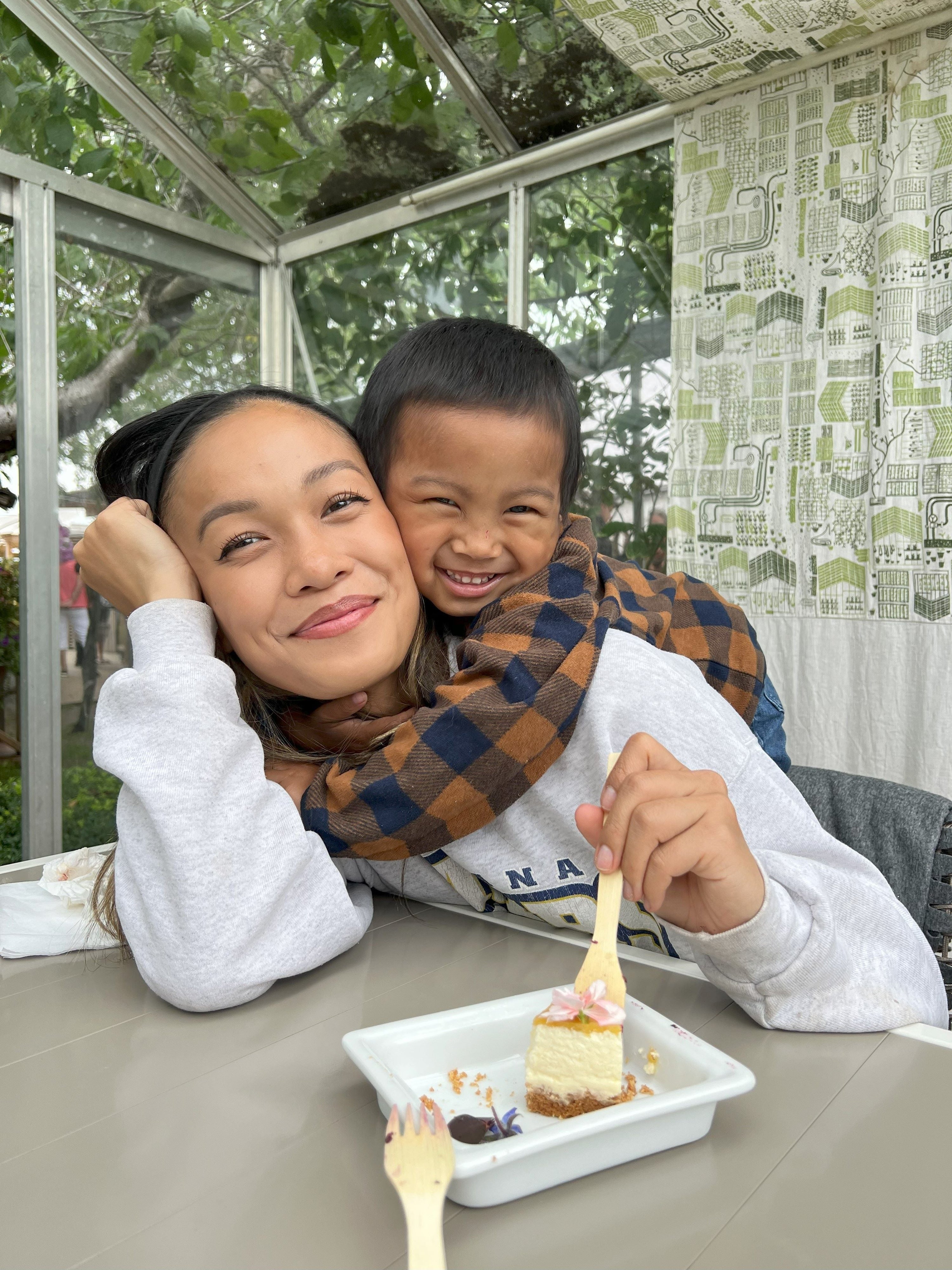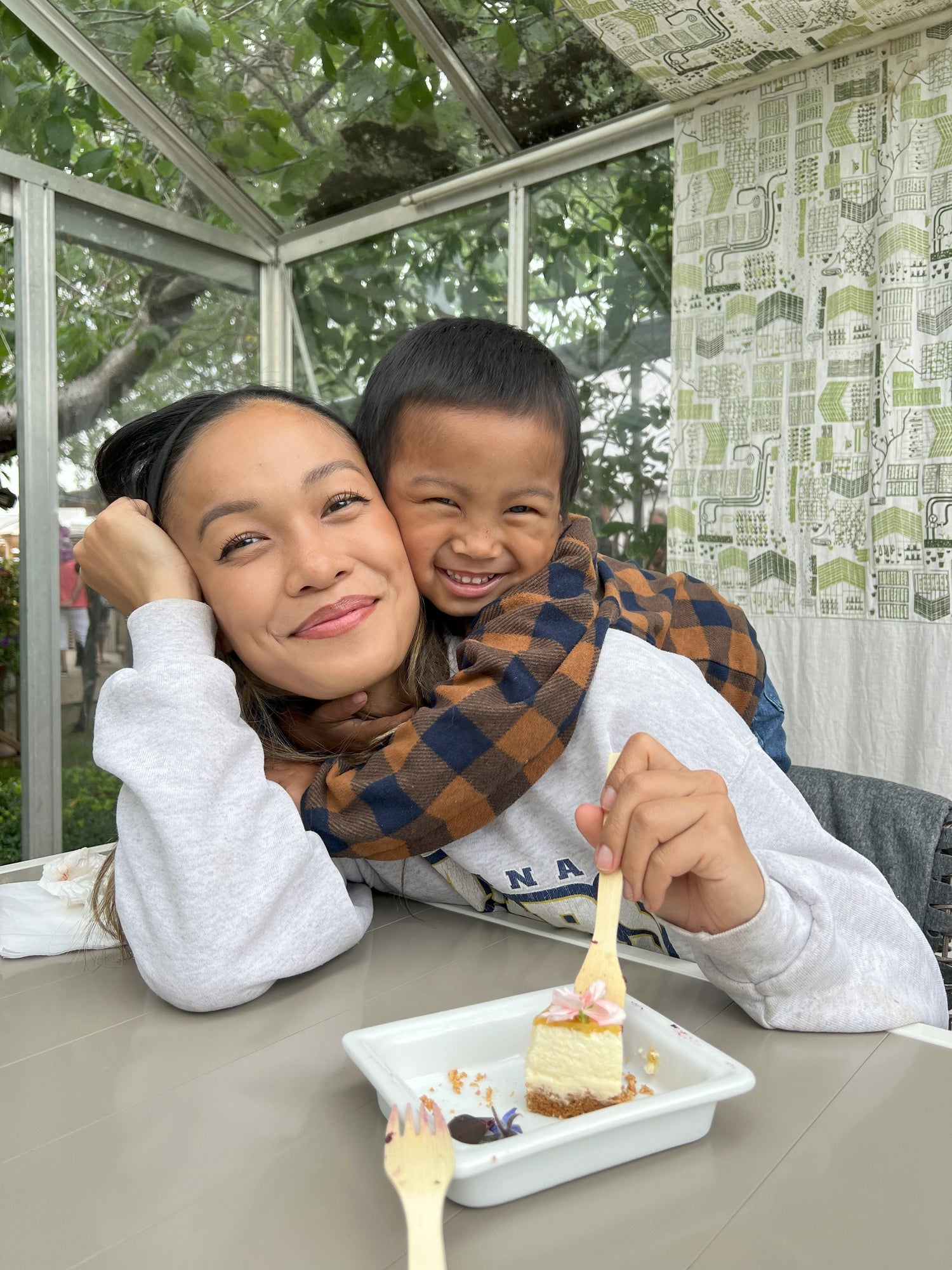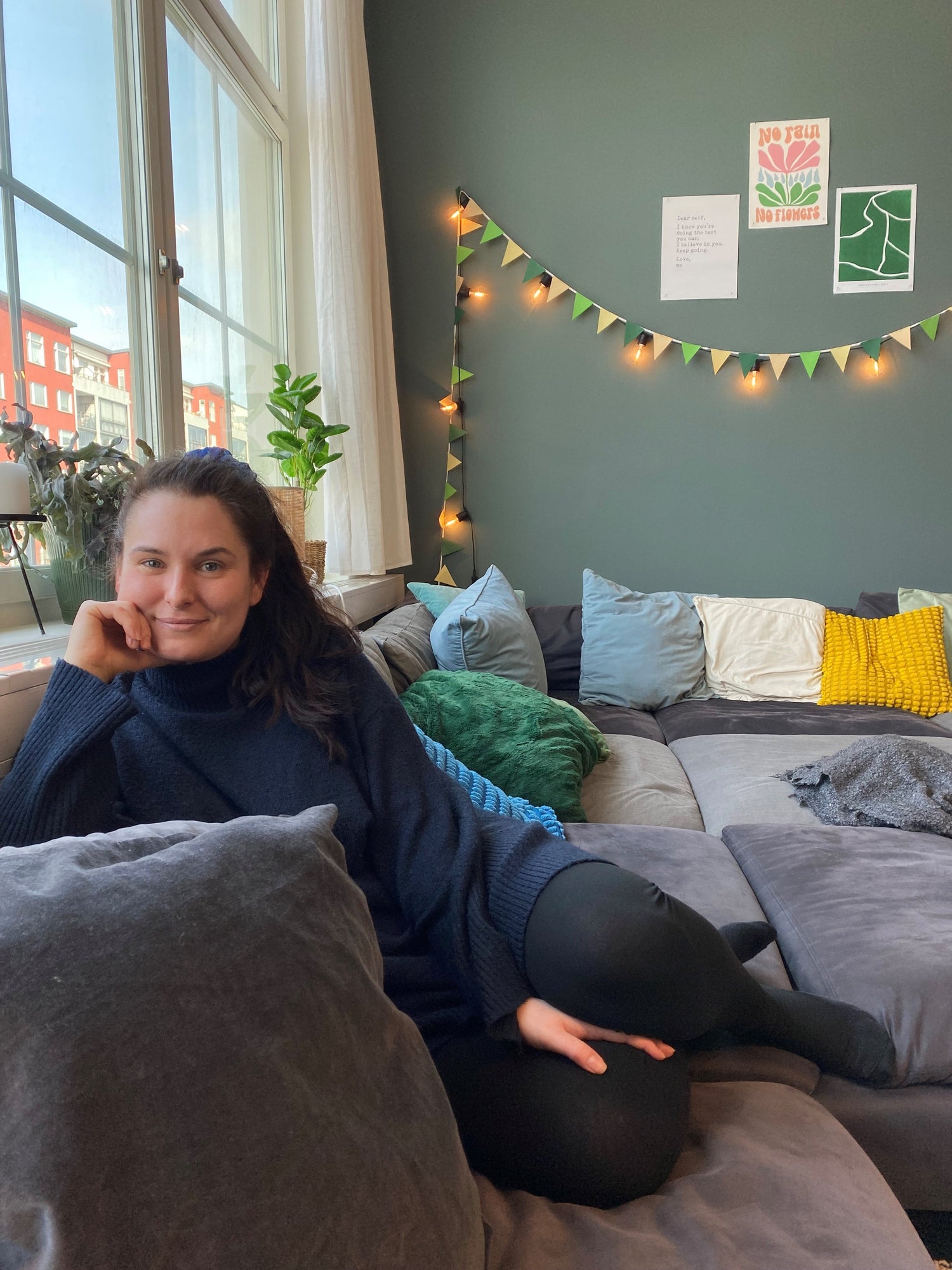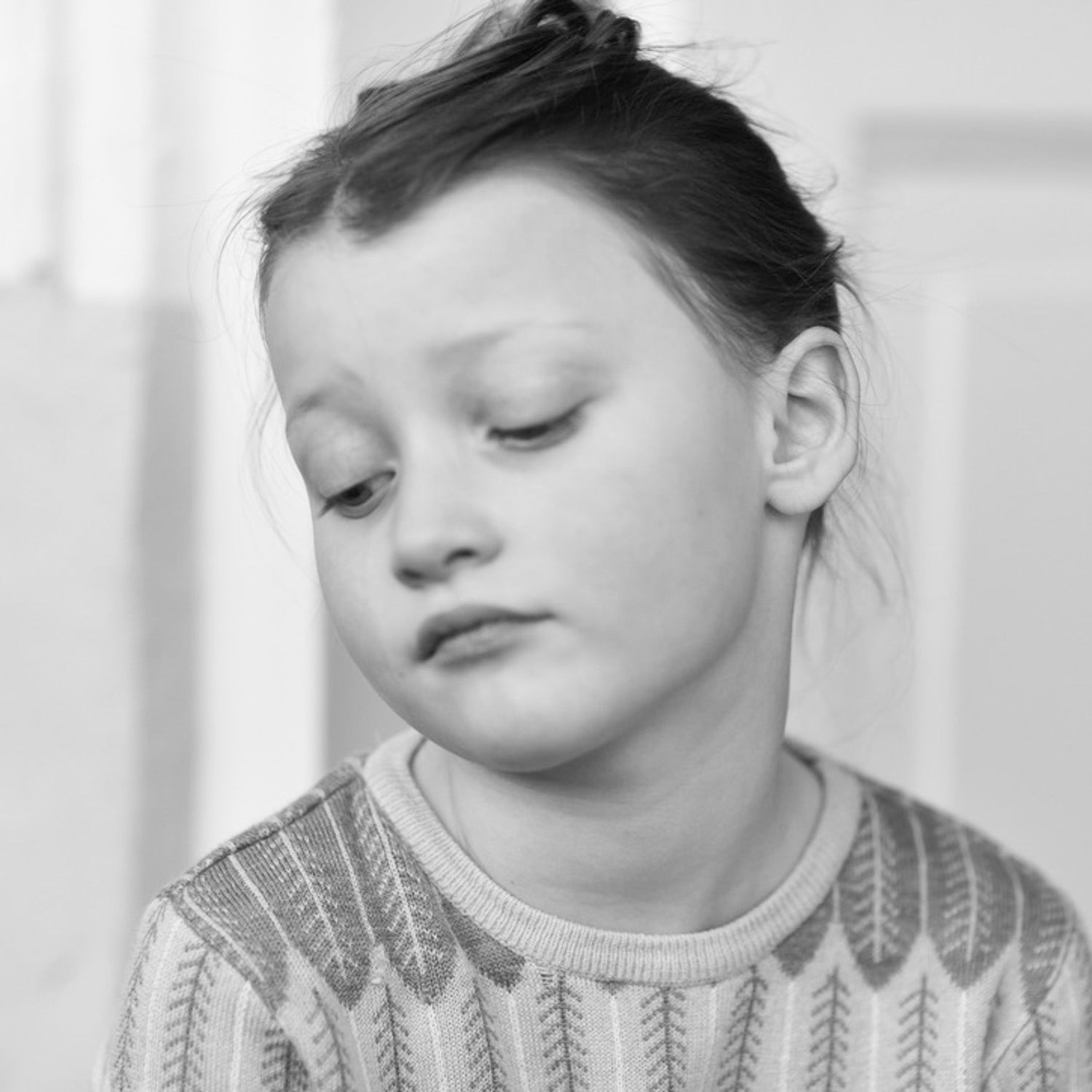Pim, Pimpinia, is a mother we have followed for a long time. Through her platform In social media we get to share thoughts about everyday life and hide her first as a single mother, and now together with her partner Emil. Pim is open that life has not always been a bed of roses. As a single mother, she has experienced that it can be hard, but also the benefits. We have also been able to share how she has been personally affected by the gang conflict that plagues many Swedish cities. When we asked if she wanted to talk about this - parenting, life as a single mother and gang conflicts among young people, she said yes.
Thanks Pim for sharing!

Tell us about yourself and your little family!
Hello! My name is Pim, I'm 28. I have a son who will be four in four days and we live in Stockholm together with bonus dad Emil, or Memil as we call him. I work with social media, and so I have an idea related to charity that I'm looking for investors for.
From Emotion Cards everyday there is a card called "how was your day" I had planned to start by asking a question from there "tell me about something that made you happy, proud, curious or maybe angry or sad today".
Today was chaos in the morning. The worst thing is when you're in a hurry with children, and they realize they don't want to cooperate. Everything became chaotic, my son wanted to jump into the car seat himself, but at the same time not sit in the car. I picked him up anyway when we had to go and he got really angry, sad and cried all the way to preschool. I wished I had reacted better.
When your son Jordan was born, you were a single mother. What emotions were the hardest to deal with during that time? Were there also positive emotions about being alone with your son?
Me and my son's father separated a week before the birth. The whole pregnancy was marked by a difficult feeling and a lot of fear about how it would go, if I had to handle everything myself. The closer we got to the birth, the worse it got. After the birth and the separation, I had some breathing space to think that it was much better this way. At first I was angry and sad, but since the relationship with Jordan's father was destructive, I could see that it was for the best that I was single.
Many of mine feelings was about how I could co-parent with someone I had a conflict with. There were many feelings of loneliness, anger, and disappointment that it didn't turn out the way I had planned. It wasn't supposed to be like this!
When you give birth to a child, however, you find so much more power, energy and strength. You learn to do things that you otherwise wouldn't have thought possible. If it weren't for my son, for example, I wouldn't have gotten a driver's license and I wouldn't have owned a car. Every now and then I really tried to see the positives of being alone with my son. Our bond was strengthened by the fact that we were the only ones together in a way that you wouldn't if there were two of us. parents.
"When you give birth to a child, you find so much more power, energy and strength. You learn to do things you otherwise wouldn't have thought possible."
As your son gets older, have you thought about how you will talk about the separation and having an absent father with him?
It's a bit of a two-part story because he has a father figure in Emil. We might be afraid that he will be disappointed that Emil is not his biological father. dad. We often try to emphasize that biology is not everything and that it should not be what defines a relationship. We don't know how the relationship with his biological father will actually look like. It's something I think about every day, how this conversation will happen and what we will say then.
I myself grew up with parents who hated each other. It made me angry sometimes and almost hate one parent, sometimes the other. It's not healthy to grow up like that.
But I don't really know today. It depends on what kind of person my son will become. For me, it's important to talk about it and accept it as it is. I hope he will see the beauty in what he has in his life now. But that is much easier said than done.
Did you talk a lot about feelings when you were growing up?
My parents come from Thailand and they separated when I was born. In Thai culture, you don't talk about feelings, so I have a hard time talking about feelings when it comes to my parents. I suspect that feelings in Thailand are not as relevant. Feelings shouldn't take up so much space when you're trying to survive.
When I was young, I wasn't really allowed to feel anger, fear, or negative emotions. I should be happy. Always being expected to be happy has haunted me. Today, when I am older, I am in strong contact with my emotions, perhaps precisely because I was so emotionally trapped as a child. If I cried when I was little, I was beaten. Mental and emotional illness did not exist, and should not be shown.
How have your experiences colored your parenting?
Now in retrospect I can reflect on it and understand that my parents were very unhappy and didn't have the space to talk about things. They couldn't handle it. What I take with me in my parenthood, which may sound dark. But I'm a dandelion child, so I take with me that you can choose to see life in two ways. Either you see your upbringing and life as genetic and hereditary, or you try to do something different for your own child.
I know my parents care a lot about me, but I grew up with my grandmother. What I really take with me from my own childhood is to be close to my son. To give him a lot of love and space for his feelings. Not teach him the old-fashioned, hard way of violent discipline.
"I'm a dandelion child, so I take with me that you can choose to see life in two ways. Either you see your upbringing and life as genetic and hereditary, or you try to do something different for your own child."
The same week we are talking, two townhouses were blown up in Stockholm, in the middle of families with children. Many are now trying to either understand or deal with the violence that has become everyday life. You have unfortunately experienced how gang-related violence affects you personally, would you like to tell us?
Yes, I really enjoy talking about it. I come from a upbringing where we hung out in large groups where many of us knew each other. each other. The older we got, the more it became clear that we were taking different paths in life. I lost a very close friend, Shayan Gaff, who was the most innocent person in the world. He was the medical student who got mixed up with another guy they were after.
Shayan and I could sit and talk for hours about our friends who had fallen on hard times, and what he wanted was to help people in their lives from misery. In my eyes, misery took his life. It is truly proof that this can happen to anyone and not just gang criminals. At the same time, everything becomes just statistics and numbers. We forget that every individual has a value that is lost. There are big gaps and divisions of us and them. Now it seems like something might be happening, but we have been screaming about this for years.
When I say that there are children who end up in the wrong place, I hear that they choose the paths they take. Everyone compares them to Zlatan from Rosengård, but not everyone is Zlatan. Those who commit these terrible acts are children who have not developed consequentialism. They are very young and they are children. And they grow up in a completely different system than children in the city, who can make other choices. But children in the city are also affected now...
There's a lot of talk about upbringing, and that those who end up in trouble don't have active and committed parents. I don't agree with that. It can happen to anyone, regardless of background.
Children being involved in gang conflicts is nothing new, but right now I think many people are wondering how to talk to their children about gang conflict among young people. Based on your own experiences, what do you think can be done to make the incomprehensible understandable to children?
This is a national crisis. How do you talk to children about war? It's the same thing where people are affected. Even though they say there are big gangs going to war against each other, I would have really liked to explain to my son why it happens.
What happens in the suburbs when society doesn't actively care. I would like to explain that it's a whole system built on differences. The suburbs need resources for the school and the children shouldn't have to fend for themselves. I want my son to understand that no matter who you are or where you live, everyone's life is worth the same, and that he shouldn't believe the angle that the media gives. Is that a children from the city that is affected she should be praised, but if it is Ahmed then no one cares. I want my son to have it in him to see everyone as equals.

How will you tell your son about Shayan and talk to him about the violence?
I absolutely will. We have visited Shayan's grave several times, and I will make him aware of which of Mom's friends ended up in the wrong place in life and are no longer with us. It's hard. It's the same as talking about death with children. I don't know what will happen after death, so what should I say?
"Separating is tough. When you've been at rock bottom there's only one way - up! When you look back on yourself you'll be so proud of yourself! Can't wait until you can look back on this time and feel proud of your journey."





